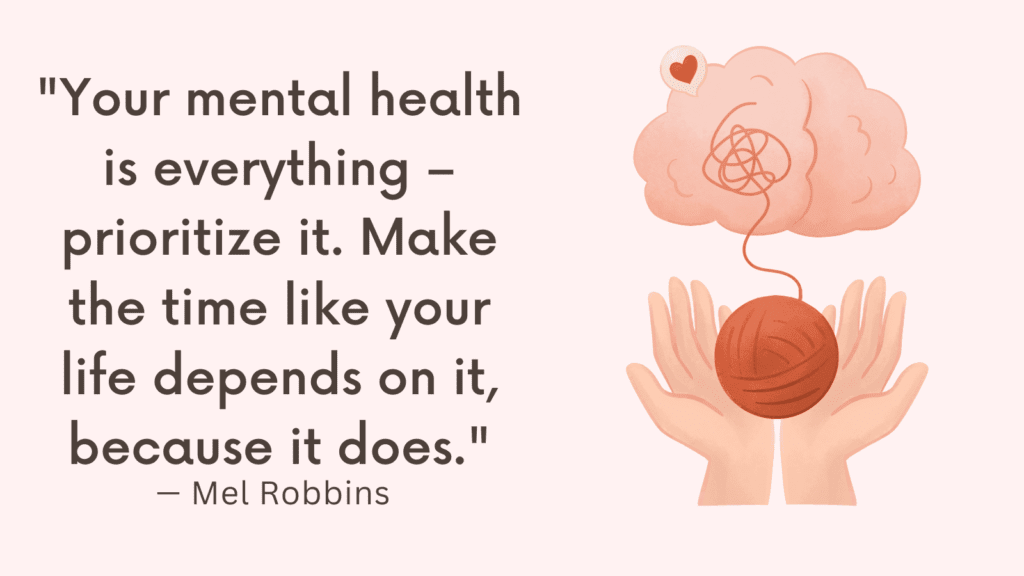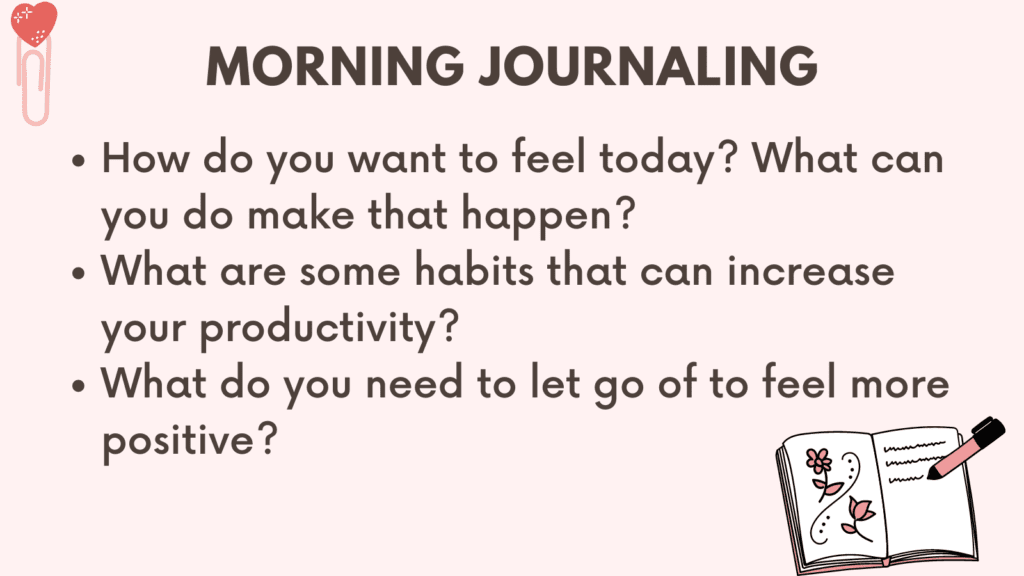This post contains some of the best journal prompts for loneliness to help you cope.
What Are Journal Prompts?
Journal prompts are prompts or questions that are designed to inspire and guide you in writing in your journal.
They can help you explore your thoughts, feelings, and experiences, and can also help you develop new insights and perspectives on your life.
Journal prompts can be specific or open-ended.
Why Use Journal Prompts for Loneliness?
Using journal prompts for loneliness can be helpful in several ways.
First, it allows you to explore and better understand your feelings of loneliness without judgment or fear of being misunderstood.
Writing down your thoughts can provide a safe and private space to process and cope with these difficult emotions.
Second, journal prompts for loneliness can help you identify any patterns or triggers related to your loneliness.
By recognizing these factors, you can take steps to address them and reduce the impact they have on your life.
Lastly, journaling can be a proactive tool for cultivating gratitude, self-compassion, and positivity.
By reflecting on positive experiences and focusing on personal strengths and values, you can shift your focus away from feelings of loneliness and towards a more fulfilling and connected life.
Related: Best 9 Tips On How To Stop Avoidance Cycle (+FREE Worksheets PDF)
Journal Prompts for Loneliness
1. How does loneliness manifest in my life? Describe the emotions, thoughts, and physical sensations associated with it.
2. Reflect on the circumstances or events that may have contributed to your feelings of loneliness.
3. How does loneliness affect my relationships with others? Explore any patterns or challenges that arise.
4. Write about a time when you felt truly connected and fulfilled in a social setting. What made that experience special?
5. List five things you appreciate about solitude and being alone.
6. Describe your ideal social interactions and relationships. What do they look like? How do they make you feel?
7. Write about any fears or insecurities that may be holding you back from forming meaningful connections with others.
8. Explore any limiting beliefs you have about yourself that may contribute to feelings of loneliness. Are they valid or rooted in negative self-perception?
9. Write a letter to someone who has made a positive impact on your life, expressing gratitude for their presence.
10. Reflect on any past experiences of loneliness. What did you learn from those moments? How did you grow as a result?
11. Write about activities or hobbies that bring you joy and fulfillment, even when you engage in them alone.
12. Describe how you currently nurture and care for yourself during periods of loneliness. Can you identify any areas where you can improve self-care?
Related: Best 23 Gifts For People With Depression
13. Reflect on the qualities you value most in a friend or companion. How can you embody these qualities yourself?
14. Write about a time when you offered support or companionship to someone else. How did it feel to be there for them?
15. Explore any patterns in your social interactions. Are there any behaviors or habits that might push people away or hinder connection?
16. Describe the type of community or social group you would like to be a part of. What common interests or values would you share?
17. Write a list of positive affirmations about yourself and your worthiness of love and connection.
18. Reflect on any childhood experiences that may have shaped your relationship with loneliness and social connection.
19. Explore any underlying emotions beneath your feelings of loneliness. Is there sadness, fear, or longing that needs to be acknowledged and addressed?
20. Write about a fictional character or historical figure who inspires you with their ability to overcome loneliness. What lessons can you learn from their story?
21. Imagine your ideal day filled with social interactions and connections. Describe it in detail, focusing on the feelings of joy and fulfillment.
Related: Am I Lonely Quiz (+ Top 5 Tips To Overcome Loneliness)
22. Reflect on any self-imposed barriers or walls you may have built to protect yourself from potential rejection or hurt. Are they still serving you?
23. Describe the qualities and characteristics you bring to any social interaction or relationship. How do you contribute positively to the lives of others?
24. Write about any expectations or pressures you place on yourself regarding social success or fitting in. Are these expectations realistic or necessary?
25. Reflect on the quality of your self-talk during moments of loneliness. How can you nurture a more compassionate and supportive inner dialog?
26. Describe a difficult or uncomfortable conversation you need to have with someone to enhance a relationship or seek resolution. How can you approach it with empathy and understanding?
27. Write a letter to your younger self, offering comfort and advice during times of loneliness.
28. Explore any cultural or societal messages that may influence your perspective on loneliness and social connection. How can you challenge or redefine these beliefs?
29. Reflect on the concept of self-love and how it relates to combating loneliness. What actions can you take to cultivate a stronger sense of self-worth?
30. Write about a time when you felt seen and understood by another person. What factors contributed to that connection?
31. Describe your favorite fictional character or celebrity who portrays strong social bonds or resilience. What traits do they possess that you admire?
32. Explore any small steps you can take to expand your social network or engage in new activities that align with your interests.
33. Write a list of qualities you admire in yourself that can help you attract and maintain meaningful relationships.
Related: Journal Prompts For Depression (+FREE Depression Worksheets PDF)
34. Reflect on any past friendships or connections that ended. What were the lessons learned from these experiences? How can you apply them moving forward?
35. Describe the ways in which you can create a sense of community and belonging within your current environment.
36. Write about any personal goals or dreams that loneliness may have caused you to put on hold. How can you work towards them despite your current feelings?
37. Explore any alternative perspectives or reframing techniques that can help shift your mindset around loneliness.
38. Describe the supportive and nurturing qualities you seek in a friend or partner. How can you cultivate those qualities within yourself first?
39. Reflect on any cultural or community resources available to you that promote social connection and combat loneliness.
40. Write about any role models or mentors who have walked a similar path and found fulfillment despite loneliness.
41. Reflect on any social skills or communication strategies you can develop or improve upon to enhance your relationships and decrease feelings of loneliness.
42. Write a letter to someone who has impacted your life negatively, expressing forgiveness and releasing any lingering resentment or hurt.
43. Explore any activities or volunteer opportunities in your community that align with your interests and can provide opportunities for social connection.
44. Describe the qualities and characteristics of your ideal social support system. How can you actively seek out individuals who possess these qualities?
45. Reflect on times when you may have unintentionally pushed others away. What actions can you take to repair or rebuild those connections?
46. Write about any beliefs or assumptions you hold about yourself that may hinder your ability to form connections or maintain relationships.
47. Describe the ways in which technology and social media impact your feelings of loneliness. How can you use these tools mindfully to foster genuine connection?
48. Reflect on any past experiences of rejection or feeling left out. Explore strategies to heal from those wounds and move forward.
49. Write a list of activities or hobbies you’ve always been curious about but have been hesitant to try alone. Challenge yourself to engage in one of them.
50. Reflect on the progress you have made in combating loneliness and nurturing your social connections. Celebrate your achievements, no matter how small.
Related: Best 50 Affirmations For Loneliness
Related: Best 10 Nonfiction Books About Loneliness
How to Use Journal Prompts for Loneliness?
Here are some suggestions for using journal prompts for loneliness:
1. Choose a prompt: Start by selecting a prompt that resonates with you. It could be something related to a current situation in your life or a topic you want to reflect on.
2. Write freely: Once you have your prompt, start writing without worrying about grammar, spelling, punctuation, or structure. Just let your thoughts flow freely onto the paper.
3. Dig deeper: As you write, try to go deeper into your thoughts and feelings. Ask yourself questions and explore your emotions and reactions.
4. Reflect and learn: Once you’ve written, take some time to reflect on what you’ve written and what it means for you. What did you learn from the exercise? Did anything surprise you?
5. Use the prompts regularly: To get the most benefit from journal prompts, use them regularly. Set a time each day or week to write and use different prompts each time to keep things fresh.
6. Enjoy the process: Remember that this is a personal journey and a chance for you to connect with yourself. So, enjoy the process and don’t worry too much about the results.
Related: High Functioning Depression Test (+Effective 3-Step Guide To Overcome High Functioning Depression)

Conclusion
Journal prompts can be a helpful tool in combating loneliness by allowing you to reflect on your feelings and pinpoint any underlying emotions or patterns.
Remember, the key to making the most of journal prompts is to be honest and non-judgmental with yourself.
Use this as an opportunity to explore your feelings and work towards building fulfilling connections with others.



